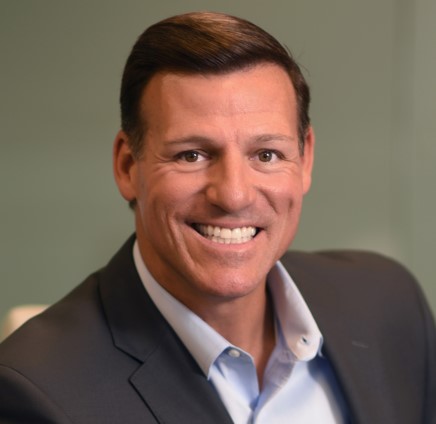Ingram Micro has just made the biggest change at the highest tier of its org chart in slightly over a decade. In the near term, at least, that will mean little change for Ingram partners, according to Paul Bay, who officially became the distribution giant’s CEO yesterday after serving as executive vice president and president of global technology solutions since the start of 2020.
“We’re going to continue to make investments around helping our partners,” said Bay in a conversation with ChannelPro today. More specifically, he continued, Ingram will continue pouring money into streamlined, integrated operational tools like the Flexible Subscription Engine, a heavily automated “quote to cash” interface for delivering and managing everything-as-a-service solutions introduced last November.
“To the partners, that means we’re going to help remove complexity,” Bay says. “I want to make sure we’re an indispensable business partner to them and really a business partner behind the brands that they represent.”
That’s a mission fully backed, he adds, by Platinum Equity, the private investment firm that bought Ingram from Chinese conglomerate HNA Group in a $7.2 billion deal completed last July.
“They have done nothing but support and want to accelerate our goals and objectives, which I think is super exciting for our partners,” Bay says. “They’re wanting to invest and make sure we’re adding that value in a very short period of time.”
Alain Monié, who became Ingram’s CEO in August 2010 and is now its executive chairman, led the company through some momentous years. In addition to presiding over the sale to HNA and subsequent sale to Platinum, Monié spearheaded a series of strategic investments as well. Those include the 2015 acquisition of BrightPoint, a provider of device lifecycle services and solutions that gave Ingram a bigger footprint in mobility, and the 2015 purchase of the Odin Automation solution from Parallels. That system went on to become a core part of CloudBlue, the online commerce platform, launched in 2018, that has helped Ingram adapt to a new cloud-first era.
“His legacy is [after] 40 plus quarters of being at the helm we’re a more resilient and a better company,” says Bay of his predecessor. “I’m in a very fortunate situation that the company’s been performing well.”
In connection with yesterday’s executive shakeup, Ingram announced that Nimesh Davé, the company’s executive vice president and president of global cloud, plans to transition out of that role in coming months.
“He’s been a great friend,” Bay says of Davé. “He’s done a great job of really setting this business up for continued success and I appreciate everything he’s done for me personally, and for the company.” Ingram’s cloud executive team now reports to Bay.
The other executive changes announced yesterday involve the appointment of new leaders for the Americas business that Bay previously oversaw himself. Kirk Robinson, formerly senior vice president and chief country executive for the U.S., is now executive vice president and president, North America, a job that puts him in charge both of U.S. operations and of the Ingram Micro Canada unit led by senior vice president and chief country executive Bill Brandel.
“Kirk’s been around the business for a long period of time with great success,” Bay says of Robinson. “The partners know him, and he’s a good listener.”
Luis Férez, meanwhile, has been promoted to senior vice president and president, Latin America, adding responsibility for all of Ingram’s business in that region to his previous duties directing operations in Mexico, Columbia, and Peru.
Bay plans to spend the coming months studying up for his new role. “I’m really going to take some time to understand and listen to partners, listen to team members, and understand the businesses I haven’t had direct responsibility for,” he says.
He’ll have plenty of issues to think about, including competition from TD SYNNEX, the massive company brought into being by last year’s merger of SYNNEX with Tech Data, and a global pandemic now rolling into its third year. “Making sure we’re taking care of our team members and our customers is at the forefront of every decision we’re making each and every day,” Bay says.
Navigating the supply chain snarls triggered by the pandemic isn’t far behind. “Supply chain is one of the challenges that we just have to deal with in our daily lives,” Bay says.
Based on conversations with customers and vendors, Bay suspects that particular challenge will ease in the second half of the year, but admits to being no more sure of that than anyone else. “I don’t have a crystal ball of when that’s going to come to fruition, he says, insisting that until it does the breadth and depth of Ingram’s supplier network will keep adequate inventory flowing.
“We do have the opportunity to continue to leverage the relationships and partnerships we have to help fulfill those business outcomes our partners are delivering each and every day,” Bay says.














